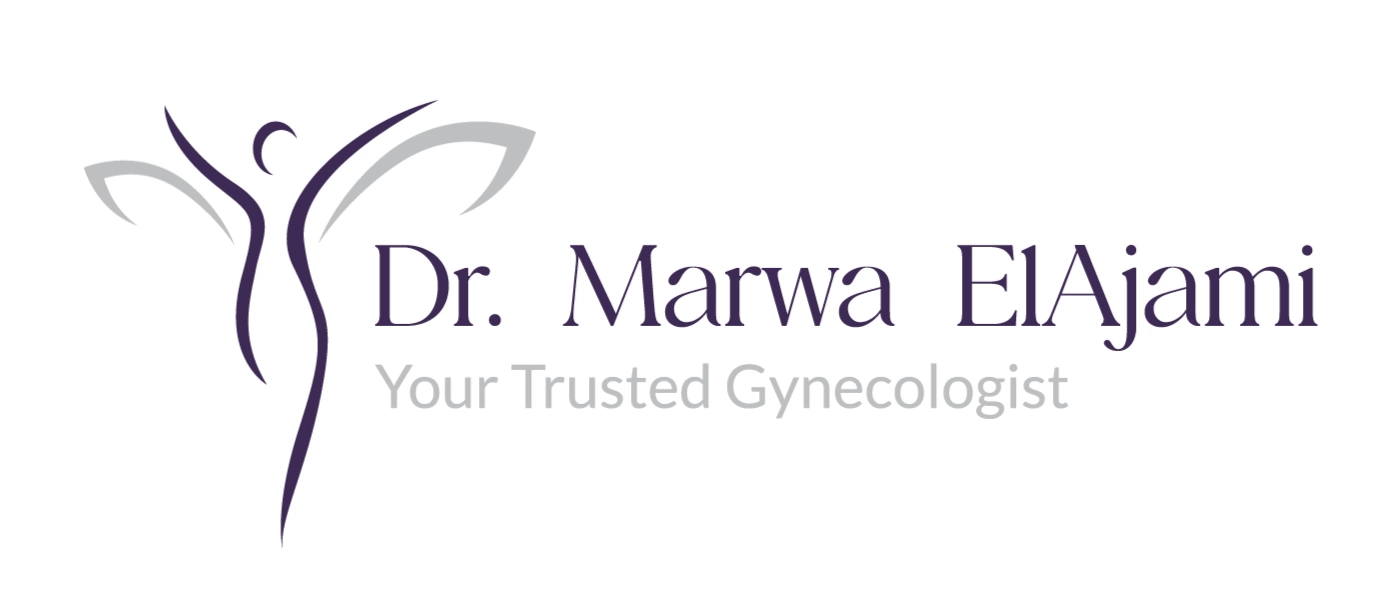Ovarian Cyst

Ovarian Cyst Treatment in Dubai – Expert Care by Dr. Marwa ElAjami
Ovarian cysts are common and generally benign, fluid-filled or semi-solid sacs on or in the ovaries. While many women may have ovarian cysts without experiencing any significant symptoms, they can sometimes cause discomfort or even lead to complications.
Whether you’re dealing with an asymptomatic cyst or one causing distressing symptoms, Dr. Marwa ElAjami offers specialized ovarian cyst treatment in Dubai. Dr. Marwa ElAjami’s extensive experience and compassionate approach ensure that women receive the highest-quality care tailored to their specific needs.
Understanding Ovarian Cysts
An ovarian cyst is a sac that fills with fluid or tissue and develops on or within one of the ovaries. It is relatively common, especially among women who have not yet gone through menopause.
Many women experience ovarian cysts as a part of their menstrual cycle, and most of the time, these cysts resolve on their own without any intervention. However, certain cysts can grow, cause pain, or lead to other complications, requiring medical attention.
Types of Ovarian Cysts
Dr. Marwa ElAjami specializes in diagnosing and treating various types of ovarian cysts. Understanding the different types of ovarian cysts can help you make informed decisions about your treatment options:
1- Functional Cysts: These are the most common and typically form during the menstrual cycle. There are two main types:
- Follicle cyst: This occurs when the follicle (the sac that releases an egg) doesn’t break open as it should, leading to a cyst.
- Corpus luteum cyst: This develops after the egg is released, and if the follicle doesn’t shrink properly, it can fill with fluid and form a cyst.
2- Dermoid Cysts: These cysts arise from cells that make eggs and can contain tissues like hair, skin, or even teeth. Dermoid cysts are almost always non-cancerous.
3- Cystadenomas: These cysts form from the cells that cover the ovary and are filled with either watery fluid or mucus. Cystadenomas can sometimes grow large.
4- Endometriomas: Known as “chocolate cysts,” these cysts are filled with dark brown fluid and are frequently associated with endometriosis, a disorder where tissue similar to the uterine lining develops outside the uterus.
5- Ovarian Cancer: While rare, an ovarian cyst may sometimes be cancerous. If the cyst is solid or shows irregularities, further investigation will be necessary to rule out ovarian cancer.
Ovarian Cyst Symptoms
Ovarian cysts often don’t produce symptoms and may be detected only during regular gynecological checkups or imaging tests. However, larger cysts or cysts that cause complications may result in the following symptoms:
- Pelvic pain or pressure
- Back pain
- Bloating or feeling full
- Nausea or vomiting
- Pain during intercourse or menstruation
- Frequent urination
Sometimes, ovarian cysts can rupture, leading to sudden, sharp pain and other symptoms like abnormal bleeding, bloating, and dizziness. In the case of a ruptured cyst, immediate medical attention may be necessary due to the potential emergency.
Causes of Ovarian Cysts
Ovarian cysts can form due to a number of contributing factors. The causes vary depending on the type of cyst:
- Ovulation
- Endometriosis
- Polycystic Ovary Syndrome (PCOS)
- Pregnancy
- Pelvic Infections
- Hormonal Imbalances
Treatment of Ovarian Cyst in Dubai
Dr. Marwa ElAjami provides a comprehensive approach to treating ovarian cysts, ensuring that each patient receives care tailored to their specific needs. The treatment plan depends on factors such as the type and size of the cyst, its location, symptoms, and the patient’s health.
1- Watchful Waiting: Functional ovarian cysts often go away independently without needing treatment. Dr. Marwa ElAjami may recommend regular monitoring through ultrasounds to track the cyst’s progress.
2- Medication: Though there is no specific drug for ovarian cysts, hormonal birth control may be prescribed to regulate the menstrual cycle and minimize the chance of new cysts. Pain relievers may also be used to control any pain or discomfort.
3- Surgical Treatment: If the cyst is causing symptoms or has the potential to grow or become cancerous, Dr. Marwa ElAjami may recommend surgical removal. In some instances, the complete removal of the ovary may be necessary. Dr. Marwa ElAjami offers two types of surgical treatments:
- Laparoscopy: A minimally invasive procedure involving small incisions to remove the cyst. This option is ideal for smaller cysts and allows for a quicker recovery.
- Laparotomy: A more invasive surgery for larger cysts or when cancer is suspected. To access and remove the cyst, a larger incision is required.
Table of content
Contact For More information
- +971 55792547
Take the First Step

Why Choose Dr. Marwa ElAjami for Ovarian Cyst Treatment in Dubai?
Dr. Marwa ElAjami is a leading gynecologist in Dubai. She specializes in the diagnosis and treatment of ovarian cysts and provides a full range of treatment options to ensure optimal outcomes for her patients. Whether you need medication, monitoring, or surgery, Dr. Marwa ElAjami will work with you to develop a treatment plan.
Ovarian cysts are widespread and typically non-threatening, but they can occasionally cause pain or lead to more significant complications.
If you are experiencing ovarian cyst symptoms such as pelvic pain, bloating, or irregular periods, Dr. Marwa ElAjami can provide expert ovarian cyst treatment in Dubai.
Schedule a consultation with Dr. Marwa ElAjami to get personalized advice on ovarian cyst treatment in Dubai and ensure you receive the proper care.
